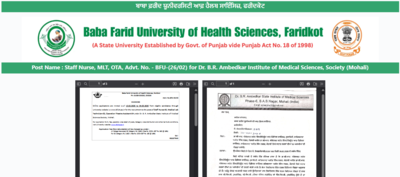How the Trump admin’s visa revocations reversal exposes deeper flaws in US campus immigration enforcement

In a stunning reversal, the Trump Administration has walked back a controversial policy that abruptly revoked the student visa status of thousands of international students, following mounting legal and public pressure. The Department of Justice announced that US Immigration and Customs Enforcement (ICE) would reinstate immigration records that had been erased from the SEVIS (Student and Exchange Visitor Information System), a decision that had thrown many students into legal uncertainty and potential deportation.
The policy reversal came just hours before ICE officials were scheduled to testify under oath in a court challenge. As reported by Time, a Justice Department attorney stated on record that “ICE is developing a policy that will provide a framework for SEVIS record terminations,” signaling that terminations based solely on minor legal issues would be temporarily halted. The American Immigration Law Association had estimated that roughly 4,700 students were affected by the terminations, many of whom were caught off-guard, with no prior notice or legal clarity.
Legal confusion and campus disruption
The terminations, initiated earlier this month, left students across the country in limbo. As their SEVIS records were deleted, they were deemed out of legal status and subject to detention or removal. Some students were prevented from attending classes or accessing basic campus services. Others, facing even more severe consequences, were detained or pressured into self-deportation.
Read Also: Trump administration backs down in legal fight over international student records
Federal judges in at least 23 states issued emergency orders halting the terminations, criticizing the government’s actions as “arbitrary, opaque, and potentially unlawful,” according to Time. Over 100 lawsuits were filed by affected students, universities, and advocacy groups, arguing the mass cancellations violated due process protections.
Unanswered questions and selective enforcement
Despite the policy’s rollback, the future remains uncertain for many. Time reported on two high-profile cases—Rümeysa Öztürk and Mahmoud Khalil—that exemplify the ongoing legal ambiguity. Öztürk, a Tufts University doctoral student, was detained in Massachusetts after ICE officers confronted her on the street. Her visa had been revoked days earlier, allegedly due to “activities in support of Hamas,” though her attorneys claim she was targeted for her vocal support of Palestinian rights.
Similarly, Khalil, a permanent US resident and activist at Columbia University, is facing deportation after the State Department revoked his green card. While the reversal covers those with “minor” infractions, such as dropped charges or traffic violations, it remains unclear whether national security-related terminations, such as those affecting Öztürk and Khalil, are also eligible for reinstatement. The State Department has not responded to Time’s request for comment on whether its separate visa cancellations are also being reversed.
A shift in campus control
As described by Time, the origins of the terminations remain murky, with students often learning of their changed status through school administrators or attorneys, rather than directly from ICE. Traditionally, universities have managed student immigration records. Under President Trump, ICE has begun asserting more direct control, in what legal experts call a dramatic departure from established norms.
Critics argue that this shift fits into a broader pattern of the administration using immigration tools to police political speech. In 2025, Secretary of State Marco Rubio warned that students involved in pro-Palestinian activism could face visa revocations for allegedly undermining US foreign policy, according to Time. The crackdown has drawn comparisons to post-9/11 surveillance of Muslim scholars, now intensified through digital tracking technologies.
Read Also: Board Exam Results 2025 Live Updates
While ICE frames its efforts as essential to protecting national security, legal experts and university officials continue to question the ethical and constitutional boundaries of immigration enforcement on US campuses.





